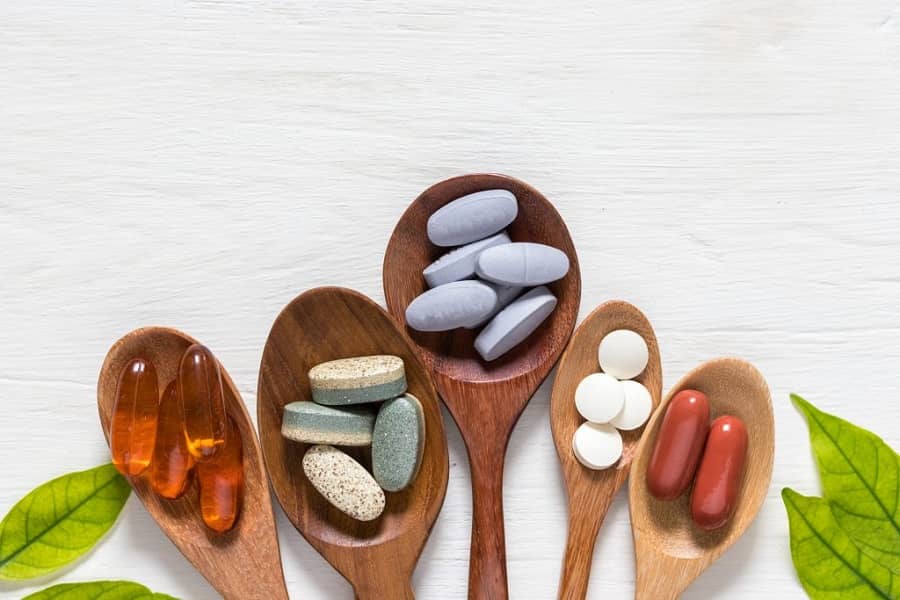Achieving healthy, radiant skin requires more than just external care. Proper nutrition plays a crucial role in supporting skin health, and vitamins are essential components of a well-rounded skincare routine. In this article, we will explore the benefits of various vitamins for skin care and discuss how to incorporate them into your daily regimen.
I. Vitamin A:
Vitamin A, also known as retinol, is renowned for its ability to promote cell turnover and reduce signs of aging. It helps maintain the skin’s integrity by supporting collagen production and reducing fine lines and wrinkles. Excellent food sources of vitamin A include carrots, sweet potatoes, spinach, and liver. However, excessive vitamin A intake can be harmful, so it is important to consult a healthcare professional for personalized advice.
II. Vitamin C:
Vitamin C is a powerful antioxidant that plays a vital role in skin health. It helps protect the skin from environmental damage, stimulates collagen synthesis, and promotes a brighter complexion. Citrus fruits, strawberries, bell peppers, and broccoli are excellent sources of vitamin C. Including these foods in your diet can help improve skin texture and combat free radical damage.
III. Vitamin E:
Known for its antioxidant properties, vitamin E helps neutralize free radicals and protect the skin from oxidative stress. It aids in preventing premature aging and helps moisturize and soothe dry or irritated skin. Nuts, seeds, spinach, and avocados are rich sources of vitamin E, and incorporating them into your diet can support healthy skin function.
IV. Vitamin D:
Vitamin D is essential for overall health, including skin health. It helps regulate immune function, reduce inflammation, and support wound healing. Exposure to sunlight triggers the body’s production of vitamin D, but dietary sources such as fatty fish, fortified dairy products, and egg yolks can also contribute to your intake. Consult your healthcare professional if you suspect a deficiency.
V. B Vitamins:
B vitamins, including B2, B3, B5, B6, B7, B9, and B12, are crucial for maintaining healthy skin. They support the skin’s barrier function, reduce dryness and inflammation, and promote a youthful appearance. Whole grains, legumes, leafy greens, eggs, and lean meats are excellent sources of B vitamins. Including these foods in your diet can help improve overall skin health.
VI. Other Essential Nutrients for Skin Health:
In addition to vitamins, other nutrients are vital for healthy skin. Zinc helps regulate oil production and supports wound healing, while selenium protects against oxidative stress. Omega-3 fatty acids help maintain skin moisture and reduce inflammation. Incorporating foods like oysters, nuts, seeds, and fatty fish can provide these essential nutrients.
VII. Incorporating Vitamins into Your Skincare Routine:
Apart from dietary intake, topical application of vitamins can complement your skincare routine. Look for serums or creams containing vitamins A, C, and E to target specific concerns. These products can help improve skin tone, texture, and overall radiance. Choose reputable brands and consult with a skincare professional to determine the best options for your skin type.
VIII. The Importance of a Balanced Diet:
While vitamin-rich skincare products can be beneficial, they should be complemented by a balanced diet. A well-rounded approach that includes a variety of fruits, vegetables, whole grains, lean proteins, and healthy fats will provide a broad spectrum of vitamins and nutrients necessary for optimal skin health.
IX. Conclusion:
To achieve glowing, healthy skin, it is important to nourish your body from the inside out. Incorporating vitamins into your diet and skincare routine can support various aspects of skin health, including collagen production, reducing signs of aging, and protecting against environmental damage. Remember to consult with a healthcare professional for personalized advice and to ensure a balanced approach to skincare.



